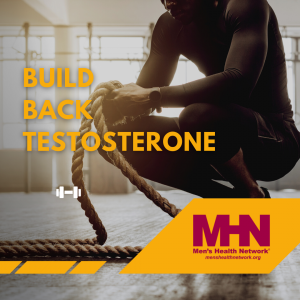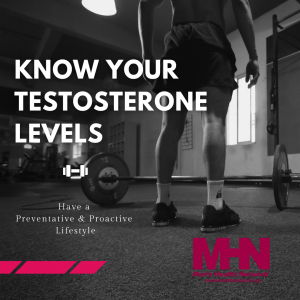Testosterone is a critical hormone for the male body. Testosterone gives men energy, sex drive, muscle mass, motivation and overall health. As men age, their testosterone naturally declines.
This is difficult for many men because symptoms of low testosterone include:
- Low sex drive
- Problems with erection
- Low sperm count
- Sleep problems such as insomnia
- Decreased muscle size and strength
- Bone loss
- Increase in body fat
- Depression
Some related studies also show that low testosterone may increase the risk of dementia. This article will explain the correlation in a simple yet thorough way.
Does low testosterone increase the risk of dementia?
Multiple studies have found a correlation between low testosterone, dementia and Alzheimer’s disease. However, if you were paying attention in high school history class, you would know that correlation does not equal causation. So yes, there have been some links between low testosterone and dementia, but there are many other factors.
Scientists have not concluded that low testosterone increases the risk of dementia because it is difficult to prove a direct cause-and-effect relationship. Men get low testosterone by not exercising enough, eating unhealthy foods and living an unhealthy lifestyle.
Living an unhealthy lifestyle also puts you much more at risk of dementia. For example, lack of exercise increases your chances of developing dementia.
It is possible that people with low testosterone are at greater risk of developing dementia Because people with low testosterone are unhealthy people, and unhealthy people get more dementia. Not because low testosterone directly causes dementia.
However, scientists do not yet know the answer. There have been many studies on this topic, all with different conclusions. So really, we don’t know the answer for sure.
Studies are inconclusive because many factors affect both conditions. Dementia and testosterone are affected by genetics, lifestyle, general health and hormonal changes.
Some studies have shown how testosterone affects brain function. Once again, the results were mixed. However, some studies have found that low testosterone increases the risk of cognitive decline.
Whether there is a direct or indirect link between testosterone and dementia, increasing your testosterone is worth it. Symptoms of low testosterone are very difficult to treat, regardless of dementia.
Understanding dementia and its symptoms:
Dementia is a neurological condition characterized by a decline in cognitive abilities. Here are some symptoms of dementia:
- Memory loss
- Difficulty in language and communication
- Reduced judgment
- Changes in mood and behavior
If you or a loved one is experiencing these symptoms, it is important to consult a healthcare professional for a proper diagnosis.
Other factors that affect the risk of dementia:
Many factors increase the risk of dementia. Some include:
- Smoking
- Lack of regular exercise
- Lower levels of education
- Alzheimer’s disease. *This is the most common cause of dementia.
- Serious head injury
To avoid dementia and also get high testosterone, live a healthy lifestyle. This includes regular exercise, healthy eating and mental and social activity.
Other negatives of low testosterone:
In addition to potentially increasing the risk of dementia, low testosterone has many other negatives. Here are some symptoms of low testosterone:
- decreased libido
- decreased energy levels
- increased body fat
- reduced muscle mass
- mood swings
If you experience these symptoms, it is essential to consult a healthcare professional for a proper evaluation.

How to increase testosterone levels:
Don’t worry, there are many ways you can increase your testosterone levels.
Testosterone replacement therapy (TRT):
TRT involves administering testosterone under medical supervision to restore levels to a healthy range. This treatment option is suitable for men with clinically diagnosed low testosterone and associated symptoms.
A major benefit of hormone replacement is that it will quickly transform your testosterone. However, once you start taking TRT, your body becomes dependent on it. So when you stop TRT, your low testosterone symptoms will return. See a doctor before starting TRT.
2. Supplements:
Several supplements claim to boost testosterone levels, but their effectiveness and safety can vary. Testosterone boosting supplements like Nugenix gathers all the nutrients you need for high testosterone and feeds them to you in one tablet. This helps your body naturally produce testosterone in your sleep.
3. Natural ways to increase testosterone
There are also many ways you can increase your testosterone naturally. Some include:
If you do all of these, your testosterone will skyrocket!
Conclusion:
In this day and age, testosterone is at an all-time low. Older men, in particular, are at greater risk of dementia and symptoms of low testosterone.
There have been many studies that have found a correlation between dementia risk and low testosterone. However, other studies have found no association.
It is not clear to scientists whether there is a direct or indirect correlation between the risk of dementia and low testosterone. No matter what it is, it’s worth trying to increase testosterone. If you want to know how to balance your hormones and testosterone with your diet, you can read this article here.
